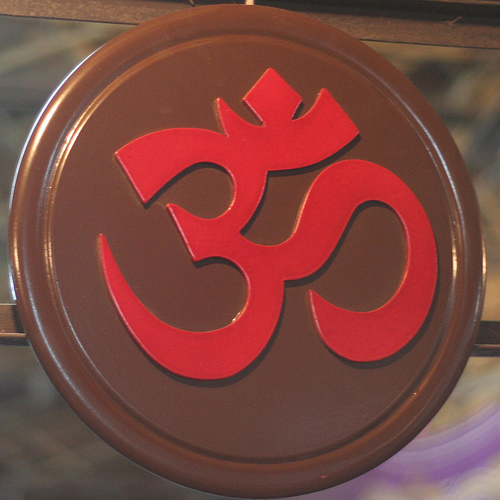Hinduism: Frequently Asked Questions

The Om (or Aum) sign is the main symbol of Hinduism.
Image by Rohit Markande, distributed under the creative commons license.
1. What is the Hindu concept of God? Do Hindus worship many gods? According to Vedanta, God is both the efficient and the material cause of creation. God is not separate from the creation itself. Absolutely everything is part of God.
Polytheism ascribed to Hindu Dharma is incorrect. All forms and names belong to the one Almighty, who can be invoked by a devotee in the form of his choice.
2. What do Hindus believe about reincarnation? Hindu Dharma envisions life to be cyclical like the rest of nature; an individual born and living today has had many previous lives and most likely will have many more.
The final goal of Hindus is not Heaven or Hell, it is Moksha, the liberation from the notion of limitedness and the cycle of repeated birth and death. Moksha can only be achieved in a human life using our free will.
3. I’ve heard people talk about “Karma.” What is that? Karma is action, which produces results because of Human free will to perform actions. To be truly free, there is equal opportunity to misuse this God-given freedom.
Hindus believe that these actions have reactions, and the Law of Karma maintains the proper balance by bringing the appropriate result of actions to individuals. Understanding this makes one socially responsible. In the realm of the Law of Karma there is perfect justice.
4. What is the Hindu attitude towards other religions? All religious traditions are accepted as correct and are seen as different paths to the same goal. Eventually, all will find the same “Truth,” as the absolute truth cannot be different for different people or at different times.
The idea of conversion by either force or persuasion does not fit in with this worldview.


Comments
Theresa Taylor
Thu, Dec 24, 2009 : 9:22 a.m.
I'm pleased to see this article. Thank you for sharing information about this religion with the people of Ann Arbor and beyond.